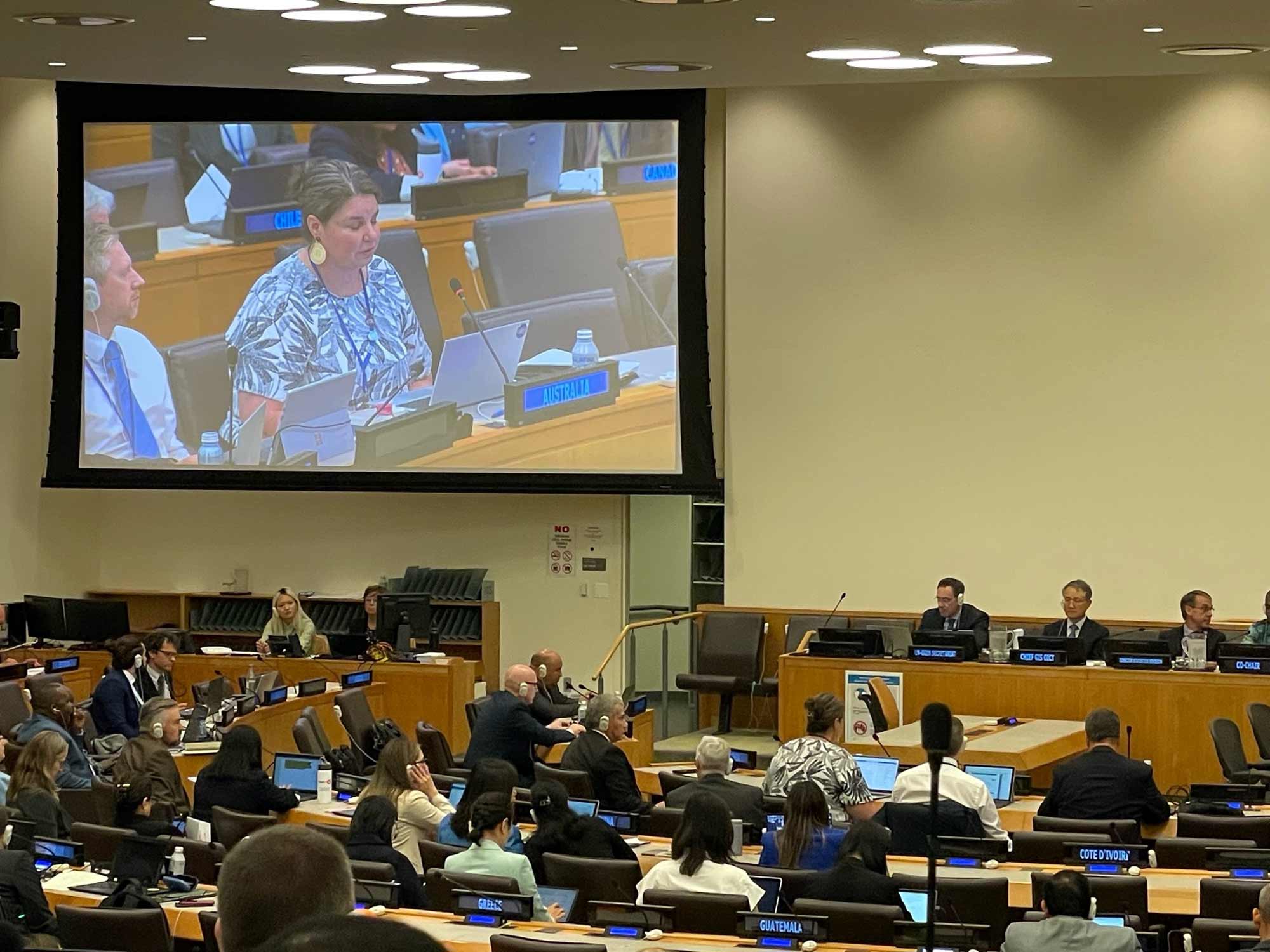News
Geoscience Australia leads Australian delegation at UN-GGIM
Published:15 September 2023
Geoscience Australia recently led the Australian delegation to the 13th session of the United Nations Committee of Experts on Global Geospatial Information Management (UN-GGIM). The UN-GGIM unites Member States and international organisations to collaborate in setting the global geospatial information agenda and using it to tackle global challenges. This year’s session discussed the urgent need to improve geospatial information management in all countries to accelerate the achievement of the Sustainable Development Goals.
The Australian delegation was led by Geoscience Australia's National Location Information Branch Head, Lisa Bush. Ms Bush emphasised the significance of the session in fostering international collaboration and knowledge exchange.
"Collaboration on a global scale is essential," Ms Bush said, "It is great to be able to share our wins and also learn from our international partners to help guide Australia’s geospatial journey." She highlighted the importance of leveraging collective expertise and building a global network to advance Australia's geospatial endeavours.
The Australian delegation presented their progress on a significant body of work on the Global Geodetic Reference Frame (GGRF), a standardised system for accurately defining positions on the Earth’s surface. The GGRF aims to ensure accurate positioning, so location data collected and shared globally is accurate, consistent and compatible. The GGRF plays a crucial role, given the growing reliance on position, navigation and timing services for activities that contribute to a healthy economy like environmental and infrastructure planning, as well as emergency management.
The Australian delegation joined discussions on geospatial standards, exploring the balance between authoritative and 'fit-for-purpose' data. This highlighted the importance of fostering trust in location data— something we are actively exploring at Geoscience Australia as part of our delivery of the Digital Atlas of Australia.
Lisa Bush at the thirteenth session of the UN Committee of Experts on Global Geospatial Information Management (UN GGIM)
The establishment of the Global Geodetic Centre of Excellence in Germany and the endorsement for the establishment of a new UN-GGIM Geospatial Centre of Excellence in Saudi Arabia are both exciting developments from the session. Geoscience Australia is looking forward to working closely with these initiatives in years to come.
Australia continues to be highly regarded in the international geospatial landscape. "We have a wealth of experience and some really impressive public sector initiatives revolutionising how we access and use geospatial data and information," Ms Bush said.
"With programs like Positioning Australia, Digital Earth Australia and the Digital Atlas of Australia from Geoscience Australia, and the successful digital twin initiatives from the states and territories, Australia's commitment to geospatial innovation and collaborations keeps us competitive."
